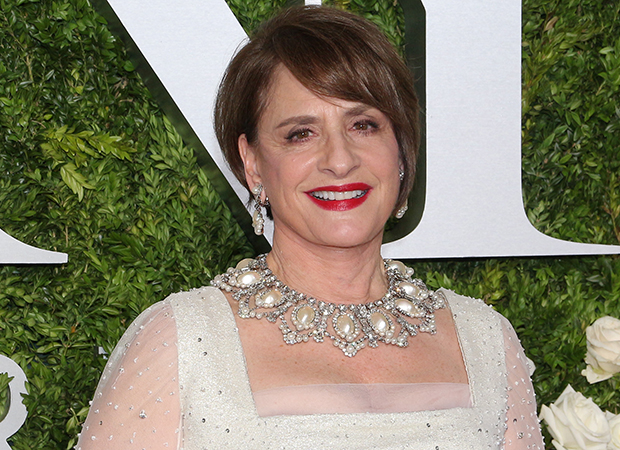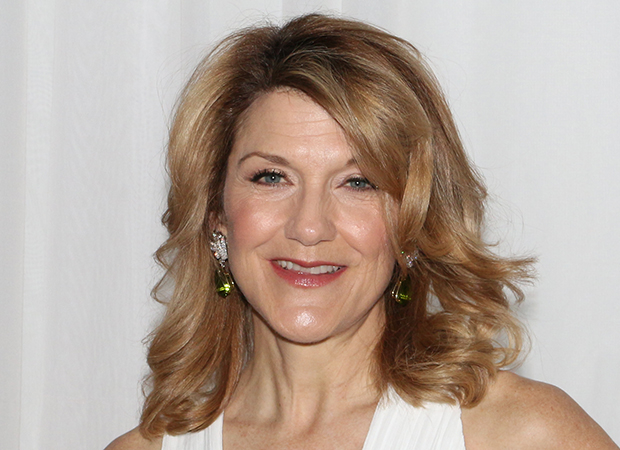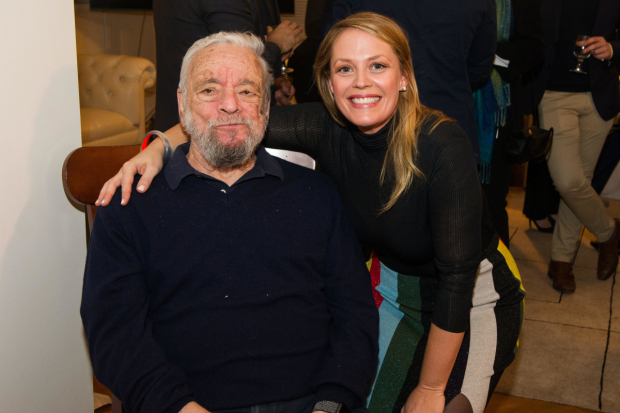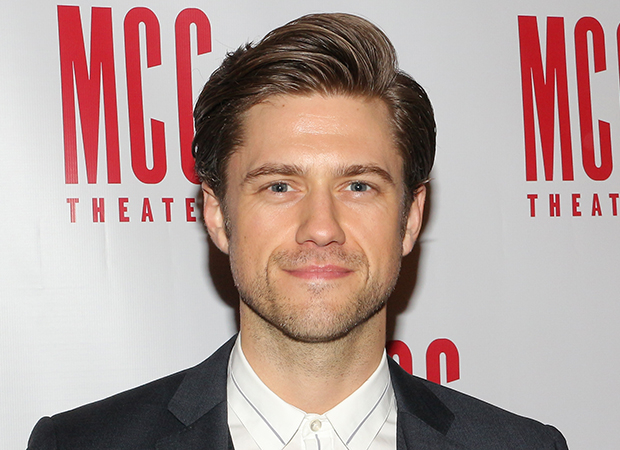Patti LuPone, Vanessa Williams, and More Share Memories About Working With Sondheim
Stephen Sondheim celebrates his 90th birthday today, March 22.
Stephen Sondheim turns 90 today, March 22. To mark the occasion, we spoke to several actors who have a long history performing Sondheim's work on stage. Here's what they had to say about the challenges and delights of singing the master's songs eight times a week.
These conversations have been condensed and edited for clarity.

Patti LuPone
Roles: Fosca in Passion (2003); Yvonne in Sunday in the Park With George (2004); Cora Hoover Hooper in Anyone Can Whistle (2005); Mrs. Lovett in Sweeney Todd (2000, 2005); Rose in Gypsy (2008); Joanne in Company (2020)
What is it like to perform Stephen Sondheim's music and lyrics?
They are a challenge to sing accurately, both musically and lyrically. They're a wonderful challenge because there's a great reward at the end if you sing it accurately. But I can't say that I've achieved it! [laughs] He wants his notes hit as written, and it's hard to hit a note as written. I'll get to the note if I swing up or down to it. He's gotten on me swooping. [laughs] When we did Company in London and Steve came over to see it, he said I wasn't singing the melody. So Joel Fram, the musical director, and I, went back to the score and he plunked it out for me note by note, and I endeavor to sing it exactly as Steve wrote. We still do that to this day.
What is the most memorable — or impactful — performance note that he's given you over the years?
The one that stands out in my mind is "monotonous mush," after a camera rehearsal for Passion. He didn't illuminate it other than "monotonous mush," so I went around to my director, my musical director, my dresser, anyone in the vicinity, and I said, "Do you not understand me? What is going on?" The person who was distributing the microphones said, "Well, Patti, when you get emotional, you have a tendency to not be understood," and I said, "Thank you, that's a note I can understand." That has been a consistent problem for me. When I get emotional, I don't enunciate. Emotions take over the performance.

Vanessa Williams
Roles: The Witch in Into the Woods (2002); Performer in Sondheim on Sondheim (2010)
What was the first Sondheim song you ever sang?
"There Won't Be Trumpets" from Anyone Can Whistle. I did it freshman year in my performance class at Syracuse, and I was hooked. Then I sang it for Sondheim before I did Into the Woods.
What is your favorite memory of working with him?
When we were doing Into the Woods, he rewrote the end of "Last Midnight," which was extraordinary. To study him in college, and then work with him, and then have him write new music for me blew my mind. When we were in rehearsals, James Lapine was asking for new lyrics as we were staging the number. The fax came in, James goes over and reads it and goes, "OK, the witch takes her bloody hand and suffocates the baby." And he's like "Steve, she's not gonna smother the baby." It was hilarious. I'm like, "If he wants me to eat the baby, I will smother and eat the baby." I will do anything because he's so brilliant.

Judy Kuhn
Roles: Fosca in Passion (2002, 2013); Sara Jane Moore in Assassins (currently in rehearsals)
What was it about Fosca that made you want to play the role twice?
An actor friend said Fosca is the Hamlet for women, because it is an endlessly fascinating, complex character that can be interpreted so many different ways. Everyone is going to bring something different to her. I think I felt a little more fearless the second time doing it because I was 10 years more experienced. If someone offered me the opportunity to do it again now, I'd love to. It only gets richer the more you work with that material. It's incredible writing.
What is the most memorable — or impactful — performance note that he's given you over the years?
He came up to me after the first run through of Passion in Washington, DC, and said, "I just want you to remember that Fosca is a 19th-century woman, and her center is down here," and he pointed to his belly. I first interpreted that as he hated everything I did, which wasn't the case, but I went home and thought about it and I invented an exercise for myself to get at what he was saying.
We did another run through and two things happened. One is that the assistant director turned to our director and said, "Is Judy OK?" She thought I was ill. And then, a lot of people said something had profoundly changed in my performance but they didn't know what it was. And it all came from that note.

Victoria Clark
Roles: Understudy in Sunday in the Park With George (1984); Beggar Woman in Sweeney Todd (2001); Sally Durant Plummer in Follies (2007, 2012); Sara Jane Moore in Assassins (2017)
What was the first Sondheim song you ever heard, and what were the first shows of his that you worked on?
Judy Collins's recording of "Send in the Clowns." I heard it on the radio and I thought it was the most beautiful thing I ever heard. I've grown up with his music. He's sort of been the soundtrack of my whole life.
I directed Side by Side by Sondheim as a junior at Yale, and then for our senior show, I directed Merrily We Roll Along. We were the first group to do that show after it closed on Broadway, and we had to get special permission from Stephen and George Furth. I love problem-solving and strategizing, so that was the perfect project for me. Ted Sperling was the musical director and it was very moving, because at the time, we were the kids on the rooftop [at the end of the show]. I didn't know that I would be working my whole career with Ted. The show actually came true for us.
What is the most memorable — or impactful — performance note that he's given you over the years?
Hands down, the best note he ever gave me was that "Losing My Mind" is not a book song, it's a torch song. You, the actor, can't sing the song as Sally. You've got to forget that you're Sally and just deliver a torch song and let the audience draw the conclusions. He'd come up to me after every show and go, "Nope." I finally got it right to his candor during the very last performance. He gave me a big hug and said, "Yeah, that was it."

(© Kurt Sneddon)
Elizabeth Stanley
Roles: April in Company (2006); Gussie in Merrily We Roll Along (2011)
What was harder: learning to sing the lyrics in Company or learning to play the music?
Definitely learning the music. "Barcelona" is not a vocally challenging song. John Doyle wanted us on our feet immediately, so I remember having the binder with the score at my feet and kicking it around us as I was carrying the instrument. It was very comical. The scene work felt much simpler. With the nature of that show, we had two rehearsal rooms. You'd be in one for band practice, as we called it, and the other would be with John and Raúl Esparza and whatever company member had a scene with Bobby. The couple of days that you were excused from band practice to work on your scenes felt like, "Oh, yes!"
What is one thing that you learned about Sondheim that most laypeople don't know?
I didn't realize that he's a lover of puzzles and games. He had the entire cast over to his house the night after Company opened, and he has a lot of antique board games and puzzles decorating his apartment. Once I knew that about him, it made sense in his writing, because it's so complex and playful. I think he gives every cast a wooden puzzle made of the show logo, and every person's initials were punched out of it. I heard a podcast recently that was about puzzles and that is a very specific kind of puzzle, which I didn't realize. I was like, "Oh, I have one of those. Stephen Sondheim gave it to me!"

Aaron Tveit
Roles: John Wilkes Booth, Assassins (2014); Bobby in Company (2017)
As an actor, what's the hardest part to learn: Sondheim's lyrics or the music, and why?
I think when you are setting out to learn a song of his from scratch, the music can be initially the daunting part. His melodies are specific and complex. But I think the lyric is actually the hard part. The story he creates in a song is even more complex than the music. And there are such subtle details that must be flushed out and learned. But once you do spend that time, everything you could possibly need as an actor is there for you. You don't need to fill any holes or create bridges within the idea of the lyric to tell the story. He has done all the work for you. And what a gift that is.
What's the most memorable — or most impactful — note Sondheim gave you, either during Assassins or Company?
The note he gave after he saw Company was the one I'll never forget. He told me everything was wonderful, but in "Marry Me A Little," it's not "We'll look nottoo deep, we'll go nottoo far"; it's "We'll look NOT TOO deep, we'll go NOT TOO far." It's something that could seem so small, but I think perfectly shows what I was trying to explain about the complexity, and also, specificity if his lyrical storytelling.







